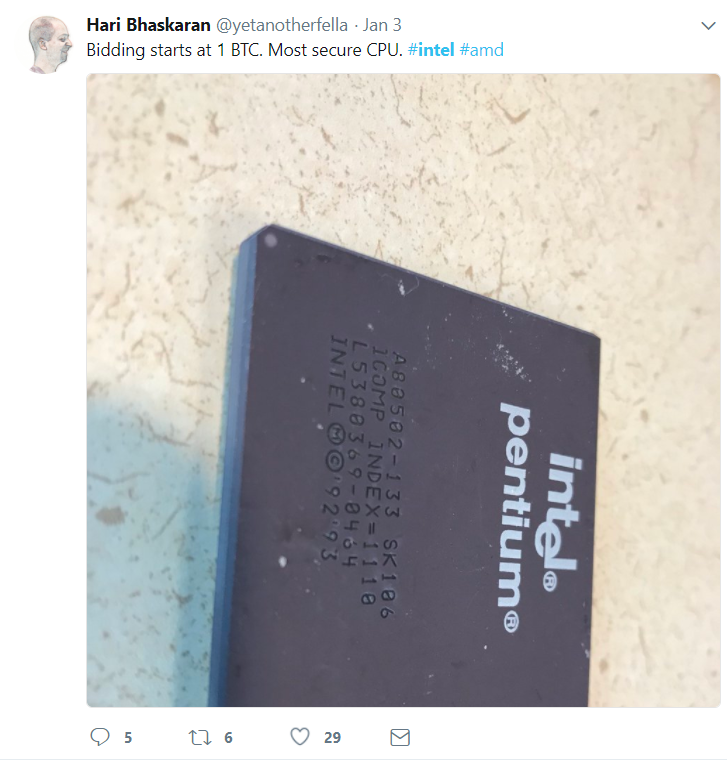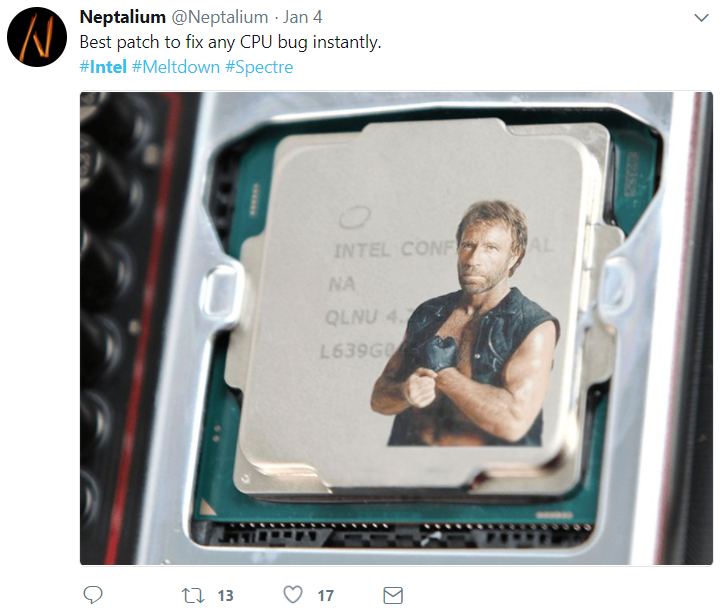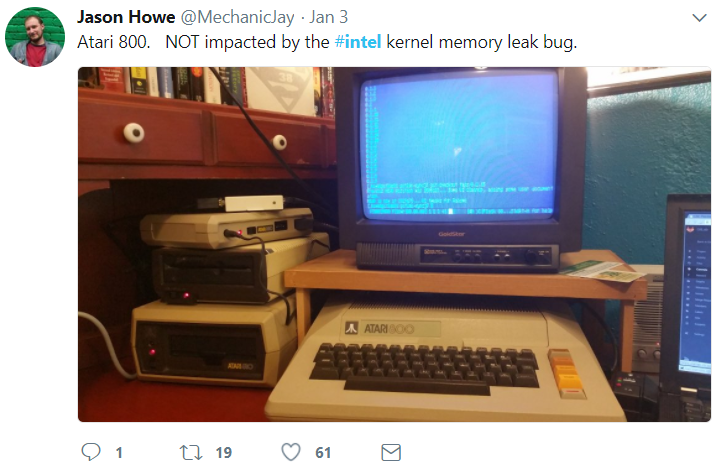After the discovery of the computer chip (CPU) vulnerabilities dubbed Meltdown and Spectre, Intel called it a "new class" of vulnerability that others discovered and the company would help tackle.
"Intel believes its products are the most secure in the world and that, with the support of its partners, the current solutions to this issue provide the best possible security for its customers," the company said in a statement.
But not everyone is buying it. Here are three significant criticisms underway against Intel and the CPU vulnerabilities in its chips.
1. Linux founder Linus Torvalds went off on Intel in a letter shared with a Linux user group.
"I think somebody inside of Intel needs to really take a long hard look at their CPUs, and actually admit that they have issues instead of writing PR blurbs that say that everything works as designed.” He continued, "And that really means that all these mitigation patches should be written with ‘not all CPUs are crap’ in mind. Or is Intel basically saying ‘we are committed to selling you shit forever and ever, and never fixing anything’?” Ouch.
2. Intel is being criticized in court as class action lawsuits are already up and running.
The first one was January 3 in northern California, where Intel is based; a second one in Indiana; and a third in Oregon, where Intel is the state's largest employer. The Oregon lawsuit says Intel knew about the problem and did nothing.
"For the past few months, Intel has advertised performance data to the public for its microchips, including on product packaging and in its online and written sales materials. Intel knew and intentionally failed to disclose to the public that its microchips contained a material defect that left its customers’ computers, smartphones and devices susceptible to unauthorized access by hackers. News of the material defect was made public for the first time on Tuesday, January 2, 2018. While patches are available to treat the material defect in Intel’s microchips, experts say that the patches will cause slowdowns, some as drastic as 25 percent to 30 percent depending on the computer, smartphone or device."
3. Twitter users have had a field day, criticizing Intel through angry tweets and with creativity.





There are more tweets to come, we're sure. But we still believe nothing has topped the way Equifax got burned on social media after its 2017 mega breach.





